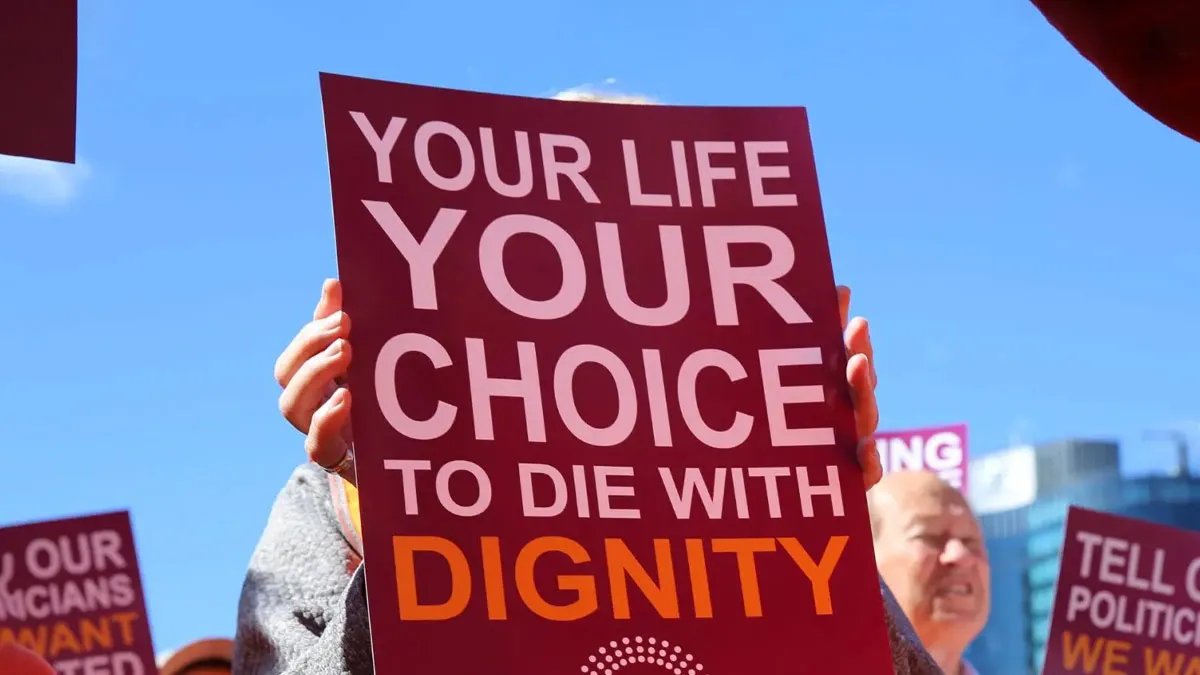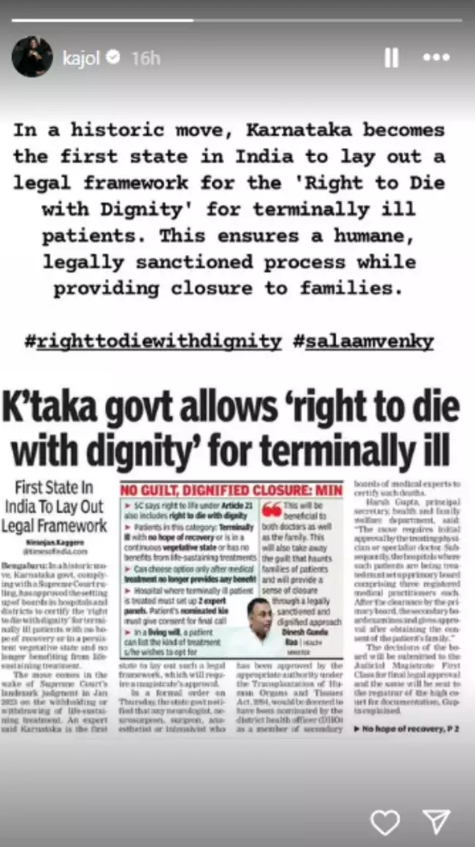
In a move that has sparked both applause and debate, Karnataka has officially approved the ‘Right to Die with Dignity’ order, becoming one of the few states in India to implement such a progressive measure. Under the leadership of Chief Minister Siddaramaiah, the state government has issued guidelines for setting up medical boards to process requests for dignified deaths. This decision follows the Supreme Court’s 2023 ruling, which simplified the legal process for passive euthanasia, allowing terminally ill patients to opt for a natural death without unnecessary suffering. For many, this is a long-awaited step toward compassionate end-of-life care, but it also raises important ethical and legal questions.

Karnataka’s decision is rooted in a series of landmark Supreme Court rulings. The Common Cause vs. Union of India case in 2018 was a turning point, as it recognised the legality of passive euthanasia and living wills. Passive euthanasia, in this context, refers to the withdrawal or withholding of life-sustaining treatment to allow a terminally ill patient to die naturally, in accordance with their wishes. The 2023 Supreme Court judgement further streamlined the process, reducing bureaucratic hurdles and clarifying the conditions under which life-sustaining treatment can be stopped.

Meghna Mishra, a senior legal expert at Karanjawala & Co, explains that the ‘Right to Die with Dignity’ is an extension of Article 21 of the Indian Constitution, which guarantees the Right to Life. “This ensures that terminally ill patients can exercise their autonomy, making end-of-life decisions that align with their wishes,” she says. However, she emphasises that strict criteria must be met: the patient must suffer from an incurable, terminal illness or be in a permanent vegetative state. Conscious patients must provide informed consent, while unconscious patients rely on living wills or family consent.
Mishra also highlights the ethical and legal safeguards in place to prevent misuse. “The system is designed to ensure that the decision remains voluntary for the patient. Any sign of coercion or undue influence can lead to criminal action, protecting vulnerable individuals from abuse.”
One of the biggest concerns surrounding the ‘Right to Die with Dignity’ is the potential for misuse, such as coercion by family members or financial pressures. Karnataka’s framework addresses these concerns with robust safeguards:
Don't Miss: Brothers Fight Over Father's Last Rites, One Asks For Half The Body
For doctors, the ‘Right to Die with Dignity’ presents both opportunities and challenges. While the law protects medical professionals who act in good faith, it also respects their right to conscientious objection. Doctors who are uncomfortable with the idea of euthanasia can opt out, but hospitals must ensure that another qualified professional is available to carry out the procedure. This ensures that patients’ rights are upheld without forcing medical practitioners to compromise their ethical beliefs.

Some experts have called for mandatory ethics training to help doctors navigate these complex decisions. Such training could provide clarity and support, ensuring that medical professionals feel confident in their roles while upholding the principles of compassionate care.
Celebrities and influencers have also come forward in support of Karnataka’s progressive decision to approve the ‘Right to Die with Dignity.’ Bollywood actress Kajol, known for her powerful performances and strong social stance, has publicly voiced her support for the state’s move. Kajol drew a direct parallel to her 2022 film Salaam Venky, which tells a story of a young man’s legal battle for the right to die with dignity.

Karnataka’s decision could set a powerful precedent for other states in India. While the Supreme Court has provided a legal framework, the lack of a uniform national law has led to inconsistencies in how end-of-life decisions are handled. Karnataka’s proactive approach could inspire other states to adopt similar measures, paving the way for a more standardised and compassionate approach to end-of-life care across the country.
Don't Miss: Delhi Shocker: Rapido Driver Allegedly Harasses Woman With Repeated Uncomfortable Calls And Texts
For more such stories, stay tuned to HerZindagi.
Image Courtesy: Freepik
Also watch this video
Herzindagi video
Our aim is to provide accurate, safe and expert verified information through our articles and social media handles. The remedies, advice and tips mentioned here are for general information only. Please consult your expert before trying any kind of health, beauty, life hacks or astrology related tips. For any feedback or complaint, contact us at [email protected].